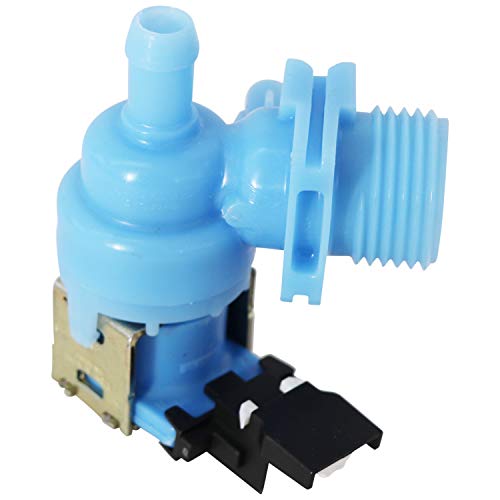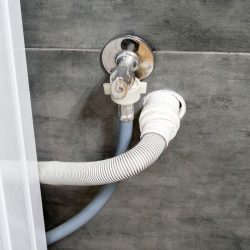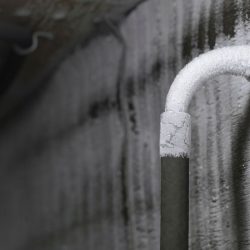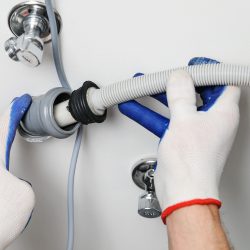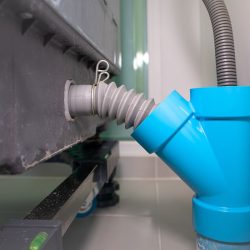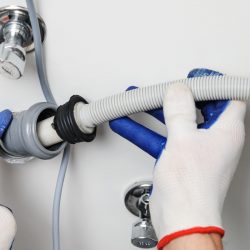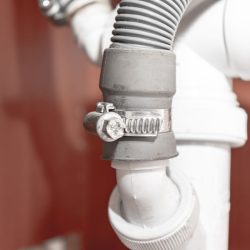Maybe you're concerned because you notice some standing water inside your dishwasher even when you haven't recently run a cycle. Maybe you notice a mysterious puddle of water in your kitchen where the dishwasher is the most likely culprit. It stands to reason the dishwasher is leaking. But can a dishwasher leak when not running? We've found the best information available and compiled it here for you.
If a dishwasher needs repair, then it can definitely leak even when it isn't running. Sometimes the core issue can be difficult to spot in these situations, but there are a handful of failures that could cause this type of issue, including:
- Faulty water inlet valve
- Calcium/limescale build-up
- Damage to door seal gasket
- Faulty check valve on the drain hose
- Improperly installed drain hose
- Unlevel dishwasher
Since we know a dishwasher can leak when not running, let's discuss the most common diagnoses that explain a leak occurring in such a way. We'll answer some other questions you might have as well.

Contents
What Causes a Dishwasher to Leak When not Running?
There are many reasons a dishwasher might leak, so this list isn't all-inclusive. That being said, these are the most commonly at fault reasons this appliance would leak while not running.
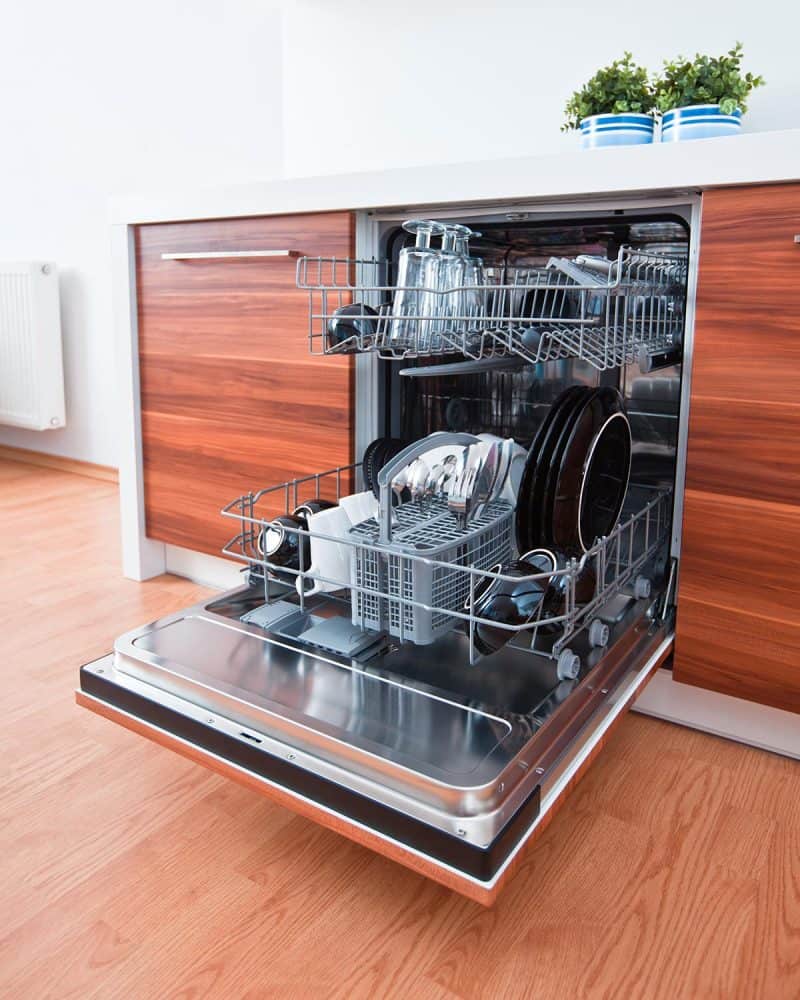
Faulty Water Inlet Valve
It's the job of the water inlet valve to control water coming into your dishwasher. The inlet value goes from open to closed during the operation of your dishwasher cycle. If something has gone wrong with the inlet valve mechanically, it can cause leaking even when the dishwasher is turned off due to leftover water trickling through.
View this dishwasher inlet valve on Amazon.
Calcium/Limescale Build Up
Hard water can cause limescale which eventually can lead to a hefty calcium build-up. You've likely seen white scum develop on your fixtures that are frequently exposed to water. This can also occur inside your pipes and valves.
That calcium build-up can withhold water flow which empties out later, creating moisture after the cycle. The build-up of calcium can also create the issue mentioned above by blocking the water inlet valve. A bad enough build-up can prevent the valve from closing all the way.
Damage to Door Seal Gasket
The gasket is the rubber part around your dishwasher door that prevents leaking before, during, and after the cycle. As a dishwasher ages, the rubber gasket can become dry and brittle, making it prone to cracks.
This issue isn't quite as likely to explain leakage when the dishwasher isn't running, as the leaking would most definitely be recognized while the appliance does its cycle. It can conceivably leak afterward, though, from excess moisture and heat leftover after the dishes have been washed.
Faulty Check Valve on the Drain Hose
It's the job of the check valve to keep dirty water from flowing back into the dishwasher after it's been used on your dishes. A clue your issue is with the check valve is if the water leaking back into your dishwasher is dirty.
The check valve opens and closes as your dishwasher cycles. If you have dirty water in your dishwasher and it's not your check valve, this indicates it's definitely an issue with the drain hose.
View this drain hose on Amazon.
Improperly Installed Drain Hose
We discussed above how the drain hose takes the dirty water out of your dishwasher. The hose already has gravity working against it, so installing it in a way where the water has to travel a long way up with no way back down is begging for problems.
The drain hose should be arranged in such a way that the drain hose rises above the spot it joins with the sink drain; this way, gravity aids the process where the suction lacks power. If the hose isn't installed properly, the water will simply spill right back into the dishwasher.
Unlevel Dishwasher
If your dishwasher isn't sitting level, it could cause leaks even when the dishwasher isn't running. Depending on the tilt of the dishwasher, it might be at just the right angle for leftover moisture in the hoses or valves to run out.
This excess water could stand in the bottom of your dishwasher or leak outside of it, depending on just how much water pools. Make sure all the leveling feet on the base of the dishwasher are present and adjust as needed.
View this leveling foot on Amazon.
How do I know if my dishwasher is leaking?
Discovering that your dishwasher is leaking might not be as obvious as it seems. Sure some leaks are very much evident by a puddle of water coming directly from your dishwasher. Other leaks might be less obvious.
In the case of a drain hose issue, the leak might be totally contained inside the dishwasher itself. Take note if there is standing clean or dirty water in your dishwasher after the cycle is complete. If you notice this after every cycle, you'll definitely know if you have a leak.
It's important to regularly check your dishwasher for leaks. A small leak can be caught before it does any water damage. This can be done during routine cleanings by removing the bottom plate and checking underneath to see if any of the valves are leaking.
It's important to know whether or not dishwashers drain while they're not running when assessing leaks. Check out our post about that.
Will a clogged filter cause a dishwasher to leak?
A clogged filter can absolutely cause a dishwasher to leak. It's the filter's job to keep pieces of food, dirt, and debris from getting stuck in the dishwasher's hoses and pipes. If the filter isn't cleaned regularly, all this gunk can build up and cause a plethora of problems.
Not only will it sorely affect your dishwasher's performance, but it can also cause water to back up and lead to leaks and overfill. Make cleaning out the filter at least a weekly maintenance step unless you don't use your dishwasher often. Best to check the filter every 2-3 cycles.
Here's a great article about cleaning a dishwasher, including the ever-important filter. Check it out!
What to do if your dishwasher is leaking?
If you find a leak in your dishwasher, try to find the source of the leak first. Some simple fixes, like filter cleaning, are something that you can do without calling a contractor.
If you're comfortable with some do-it-yourself handy work, replacing a drain hose or an inlet valve can be fairly simple, and there are tons of videos online to help you. For instance, check out this video on how to fix an inlet valve:
Even making these small fixes before calling a handyman could potentially save money in the long run. If you don't have the tools or the wherewithal to complete the fix on your own, there's no shame in contacting a plumber to check your problem. Water damage is a bear, so solving the problem ASAP should be your priority.
If your issue is due to calcium build-up, there are plenty of cleaning solvents available that can have your dishwasher running smoothly in no time.
How much does it cost to fix a leaking dishwasher?
Most leaky dishwashers cost around $200 to $300 to fix, depending on your area and the extent of repairs needed. Some easy repairs, like new gaskets or valves, could be much less expensive, and these are the types of repairs many people can do on their own. It doesn't hurt to try and diagnose the issue yourself before forking out the money for a professional.
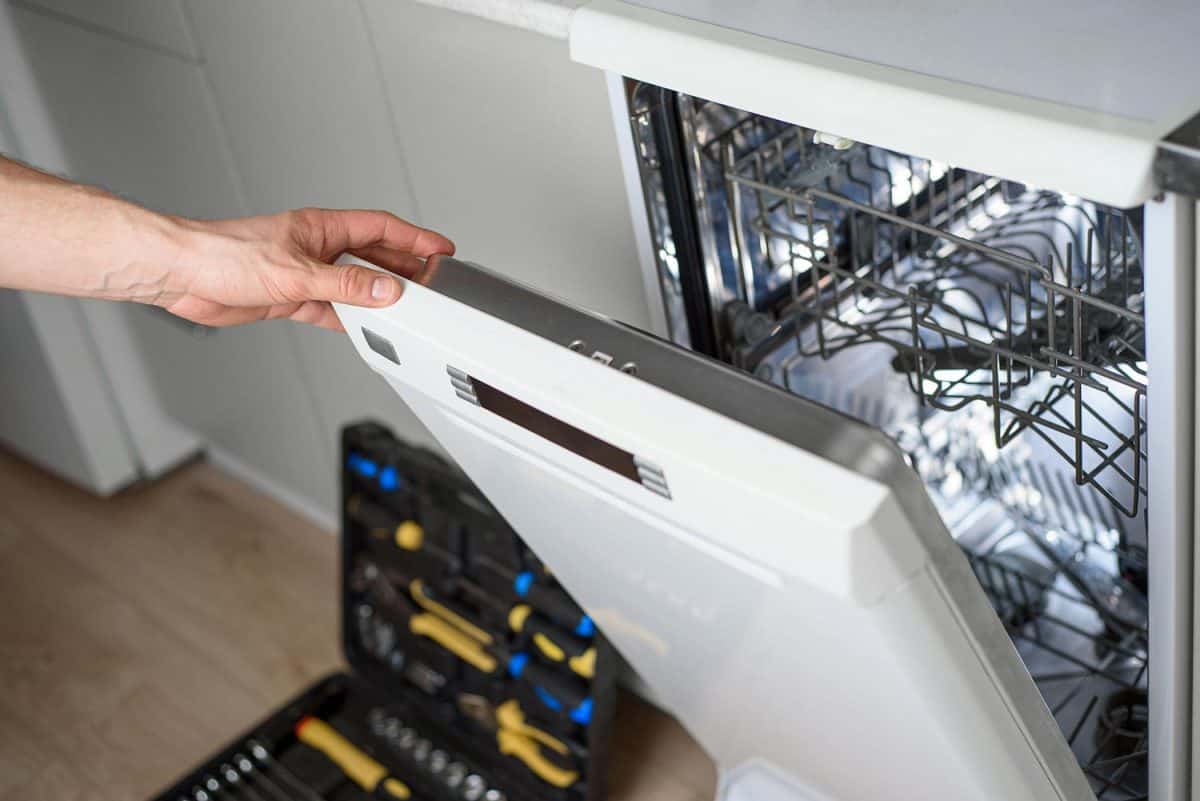
In Closing
A leaky dishwasher can be a big source of alarm, whether that leak occurs while it's not in use or while it is. The diagnosis and repair process doesn't have to be daunting, though. Most issues can be easily resolved with some research and wrenches. However you decide to resolve your issue, just try your best to tackle it before it does more damage than can be handled by a plumber alone.

